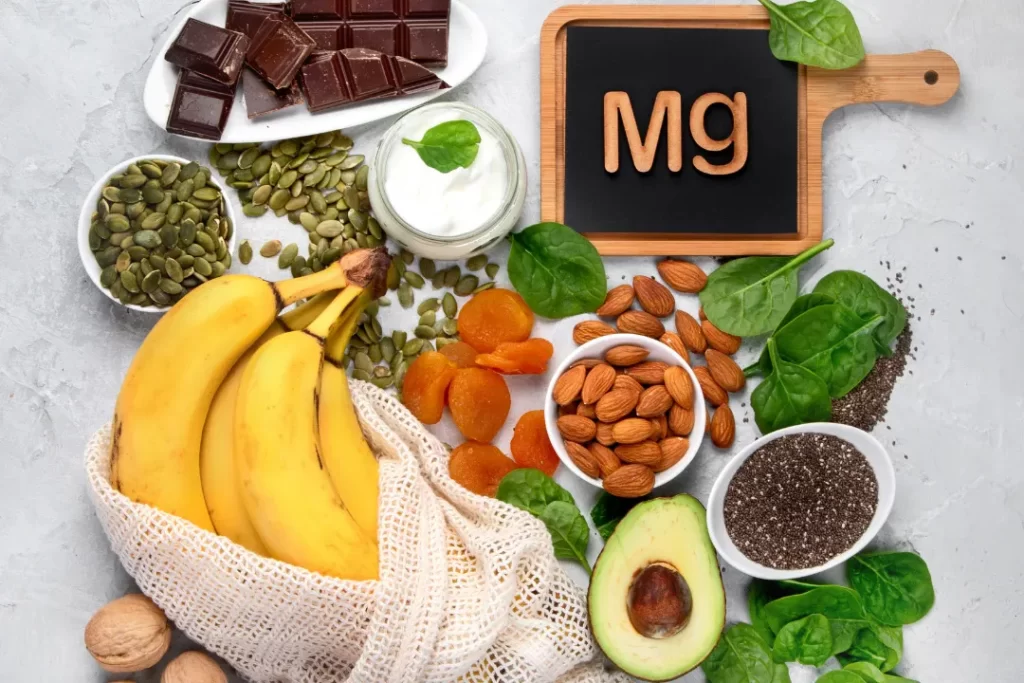Men who are approaching middle age have special dietary and supplementation requirements. In this article, we explore the most important supplements for men over 40.
As it turns out, 40 may actually be the new 30. While scientists don’t fully understand the human aging process and haven’t found out how to stop it or reverse it, researchers have developed ways to slow down some of the most severe effects of aging. The result is a population living longer, healthier lives than ever before.
Diet and exercise form a big part of the change, followed by new generations of medicines that help people survive severe diseases and enable them to live with some chronic conditions. Dietary supplements also play a role, supplying the body with essential nutrients that even the healthiest of diets might be lacking.
You May Also Like:
Clean Supplements: 5 Keys To Better Health
Vitamin K: 5 Great Benefits of This Little-Known Essential Vitamin
This article focuses on one part of the population – men entering middle age, when some of the inevitable changes start to have an impact on our quality of life. Based on the latest scientific studies, we’ll look at the most important nutritional supplements for men over 40.
The Most Important Supplements for Men Over 40 is an original (HisHealthMag) article.
If I’m a man in my late 30s, should I start taking supplements for men over 40?
Nutritionists have long maintained that eating a variety of healthy foods is the best way to get the nutrients you need. Some men may not get enough vitamins and minerals from their daily diet, and that’s when a doctor may recommend a dietary supplement to provide missing nutrients. The National Institutes of Health has these recommendations for anyone considering nutritional supplements:
- Find out as much as you can about any dietary supplement you might take. Talk with your doctor, pharmacist, or registered dietitian.
- Remember that just because something is said to be “natural” doesn’t mean it is safe or good for you. It could have side effects.
- Tell your doctor before you decide to start taking a dietary supplement to treat any health condition. Do not take a supplement to try to diagnose or treat any health condition without first checking with your doctor.
- Buy wisely. Choose brands that your doctor, dietitian, or pharmacist recommends.
- Check the science. Make sure any claim about a dietary supplement is based on scientific proof.
- Be a savvy consumer. Some advertisements promise that these products will make you feel better, keep you from getting sick, or even help you live longer. It’s important to know that often, there is little, if any, science supporting these claims.

Vitamin supplements for men over 40
Vitamins have been around longer than people, but researchers are constantly expanding our knowledge of what they do and how they do it. Here is a list from the National Institutes of Health, including the essential vitamins men need as they age, along with a list of their natural sources. If you can’t get the recommended amount in your diet, you may consider adding supplements for men over 40 to make up the difference.
Vitamin A: Vitamin A can be found in products such as eggs and milk. It can also be found in vegetables and fruits, like carrots and mangoes. Most men 51 and older should aim for 900 mcg each day.
Vitamin B1 (Thiamin): You can find vitamin B1 in meat – especially pork – and fish. It’s also in whole grains and some fortified breads, cereals, and pastas. Most men 51 and older should aim for 1.2 mg each day.
Vitamin B2 (Riboflavin): You can find vitamin B2 in eggs and organ meat, such as liver and kidneys, and lean meat. You can also find it in green vegetables, like asparagus and broccoli. Most men 51 and older should aim for 1.3 mg each day.
Vitamin B3 (Niacin): Vitamin B3 can be found in some types of nuts, legumes, and grains. It can also be found in poultry, beef, and fish. Most men 51 and older should aim for 16 mg each day.
Vitamin B6: Vitamin B6 is found in a wide variety of foods. The richest sources of vitamin B6 include fish, beef liver, potatoes, other starchy vegetables, and fruit (other than citrus). Most men 51 and older should aim for 1.7 mg each day.
Vitamin B12: You can get this vitamin from meat, fish, poultry, milk, and fortified breakfast cereals. Some people over age 50 have trouble absorbing the vitamin B12 found naturally in foods. They may need to take vitamin B12 supplements and eat foods fortified with this vitamin. Most men 51 and older need 2.4 mcg every day.
Vitamin C: Fruits and vegetables are some of the best sources of vitamin C. Citrus fruits, tomatoes, and potatoes can be a large source of vitamin C. Most men 51 and older should aim for 75 mg each day.
Vitamin D: You can get vitamin D from fatty fish, fish liver oils, fortified milk and milk products, and fortified cereals. If you are a man between 51 and 70, you need at least 15 mcg (600 IU) each day, but not more than 100 mcg (4,000 IU). If you are over age 70, you need at least 20 mcg (800 IU) but not more than 100 mcg (4,000 IU).
Vitamin E: Vitamin E can be found in nuts like peanuts and almonds and can be found in vegetable oils, too. It can also be found in green vegetables, like broccoli and spinach. Most men age 51 and older should aim for 15 mg each day.
Folate: Folate can be found in vegetables and fruit, such as broccoli, brussel sprouts, spinach, and oranges. It can also be found in nuts, beans, and peas. Most men age 51 and older should aim for 400 mcg each day.
Vitamin K: Vitamin K can be found in many foods, including green leafy vegetables, like spinach and kale. It’s also in some fruits, such as blueberries and figs. Vitamin K can even be found in cheese, eggs, and different meats. Most men 51 and older should aim for 120 mcg each day.

The Most Important Supplements for Men Over 40 is the (HisHealthMag) report.
Mineral supplements for men over 40
Like vitamins, certain minerals are needed by the body each day to maintain good health. Here are three that you want to make sure are found in your food or supplements for men over 40; there’s also one to reduce for a healthier diet.
Calcium: Calcium is a mineral important for strong bones and teeth, so there are special recommendations for older people at risk for bone loss. You can get calcium from milk and other dairy, some forms of tofu, dark-green leafy vegetables, soybeans, canned sardines and salmon with bones, and calcium-fortified foods. Men age 51-70 need 1,000 mg each day. Men age 71 need 1,200 mg each day. Don’t consume more than 2,000 mg each day.
Magnesium: This mineral is found in foods containing dietary fiber, such as green leafy vegetables, whole grains, legumes, nuts and seeds. Breakfast cereals and other fortified foods often have added magnesium. Magnesium is also present in tap, mineral, or bottled drinking water. Men 51 and above need 420 mg each day.
Potassium: Many different fruits, vegetables, meats, and dairy foods contain potassium. Foods high in potassium include dried apricots, lentils, and potatoes. Adults get a lot of their potassium from milk, coffee, tea, and other nonalcoholic beverages. Men 51 and older need 3,400 mg each day.
Sodium: Preparing your own meals at home without using a lot of processed foods or salt will allow you to control how much sodium you get. Men 51 and older should reduce their sodium intake to 2,300 mg each day.

Finding just the right supplements for men over 40
Men entering middle age are often rising to the tops of their careers, so health concerns may take a backseat to the tough competition of life in the business world. Two entrepreneurs who identify with that situation are Basim Mirza and Ramsha Mirza, who co-founded NutriRise in 2016. Although they started the business in Canada, they soon saw it become a huge success in the U.S., where all of their manufacturing facilities are located.
The company is now going global, but Basim and Ramsha state that their key goal is to continue providing a “personalized experience for busy entrepreneurs who want products designed for them.”
“This is why we spent a whole year working on a proprietary technology called botanical bot, which is integrated with the NutriRise website,” Basim says. “We’re basically working on delivering a comprehensive health assessment by asking very specific questions to help them understand where their wellness path is.”
The company has just introduced a new line of products formulated for men and their unique health needs. Warrior Code Men’s Multi is part of that line and is a great source of the vitamins and minerals listed in this article as being the key supplements for men over 40.

Further reading:
NYU: The Best Supplements for Men Over 40
NIA: Vitamins and Minerals for Older Adults
Senior Lifestyle: 5 Essential Vitamins and Supplements for Whole Senior Health
Important Note: The information contained in this article (The Most Important Supplements for Men Over 40) is for general informational purposes only, and should not be construed as health or medical advice, nor is it intended to diagnose, prevent, treat, or cure any disease or health condition. Before embarking on any diet, fitness regimen, or program of nutritional supplementation, it is advisable to consult your healthcare professional in order to determine its safety and probable efficacy in terms of your individual state of health.
Regarding Nutritional Supplements or Other Non-Prescription Health Products: If any nutritional supplements or other non-prescription health products are mentioned in the foregoing article, any claims or statements made about them have not been evaluated by the U.S. Food and Drug Administration, and such nutritional supplements or other health products are not intended to diagnose, treat, cure, or prevent any disease.
